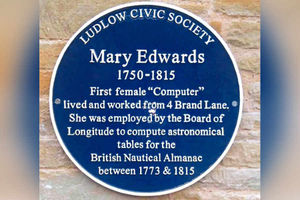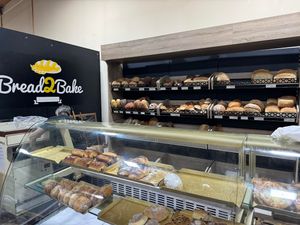Ludlow's 'human computer' Mary Edwards honoured with blue plaque
For decades she created complex charts to help sailors find their way safely at sea, while her husband took all the credit.

But now Mary Edwards has been commemorated with her own plaque on the historic Ludlow house she inhabited 200 years ago, when it was unheard of for a woman to occupy an academic government-funded position.
Mary lived from 1750 to 1815 at 4 Brand Lane and was known as a "computer", compiling astronomical tables for the use of ships at sea – or at least her husband the Rev John Edwards was, as she carried out her work under his name.
The plaque, to the first known female "computer", has been put up by the Ludlow Civic Society, after research work by Karen Lloyd. who lives at the house.
Her husband David Lloyd, chair of the civic society, admitted that, like Mary, in this case his wife had done all of the work starting her research in 2004.




